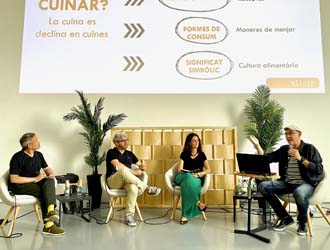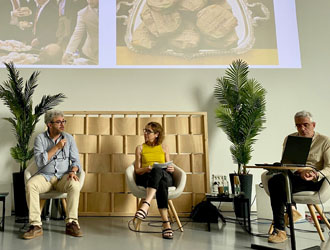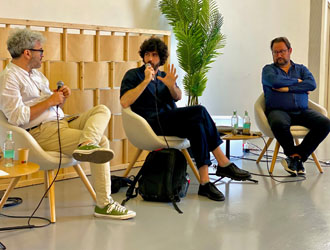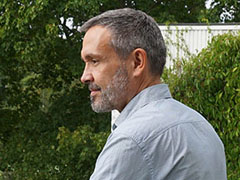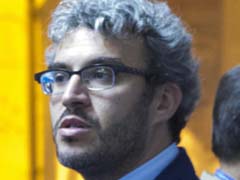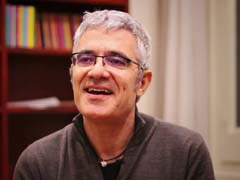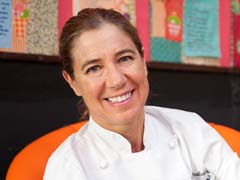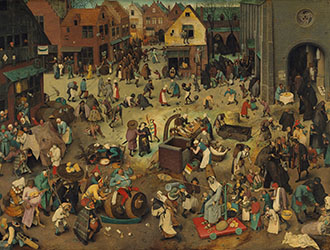Without a doubt, eating is one of the main drivers of human activity. Food -its supply, preparation, and consumption- has an impact on both domestic and public space, and it also affects the organisation of the city and its relationship with the surrounding territory, near and far.
In these sessions, experts from various disciplines offer a wide-ranging account of the relations that have been created between vital life spaces—table, house, and market—and food.
These discussions, directed and moderated by the lecturers Pere Fuertes and Gianluca Burgio, are among the workshops offered in the ETSAV (UPC) course “Food takes Command”.
19 June: 11.00 - 13.00
Dialogues about the Home | Eduardo Castillo Vinuesa and Francesc Magrinyà
Eat at home or eat out? The city and the home switch roles and are often confused. In fact, the home no longer has a single kitchen but, potentially, many more: as many as the food delivery system allows. This situation changes the usual characteristics of the domestic environment, which now partly mingles with the city and its restaurants. The kitchen and dining spaces of the home have had a central role in western culture. The system of socioeconomic relations and perceptions of food in contemporary times have brought changes in this notion of centrality which, to some extent, now belongs to the past. However, food has not lost its ability to domesticate space and transform the landscape.
20 June: 11.00 - 13.00
Dialogues about the Table | Ada Parellada and Gustavo Duch
Do we still eat at the table? Are there changes in the way we sit together at the table? The places where we eat nowadays are increasingly diverse. The city today has intense, and often irregular rhythms thus obliging us to organise meals with other priorities and conditions. We eat standing next to a food truck or sitting on the steps of a building. The table often disappears as an object, only to reappear transformed in other guises and in surprising places. The object that, until recently, we used to recognise as a place of togetherness in eating is adopting different forms that restructure the relationship between food and domesticity.
21 June: 11.00 - 13.00
Dialogues about the Market | Elena Albareda and Toni Massanés
Markets are part of the complex world of agricultural production. But where do these foods come from and what territories have been altered so that cities can be fed in the way that they are today? In the past, they were connected with neighbouring territories in close formal and physical relationships. Present-day conditions have greatly transformed these relationships. The logistics and digitisation of commerce have made possible the coexistence, in the same stall, of products from nearby gardens and others from faraway parts of the world. Precisely because of this, the food choices we make in the market can transform distant territories with quite evident ecological consequences.
Free with pre-booking by session at kivanyshyn@cccb.org



